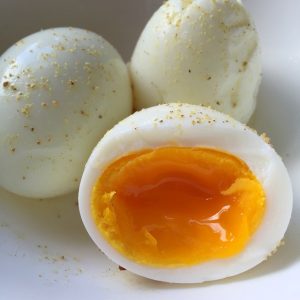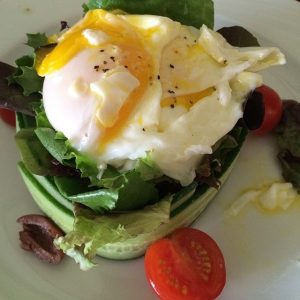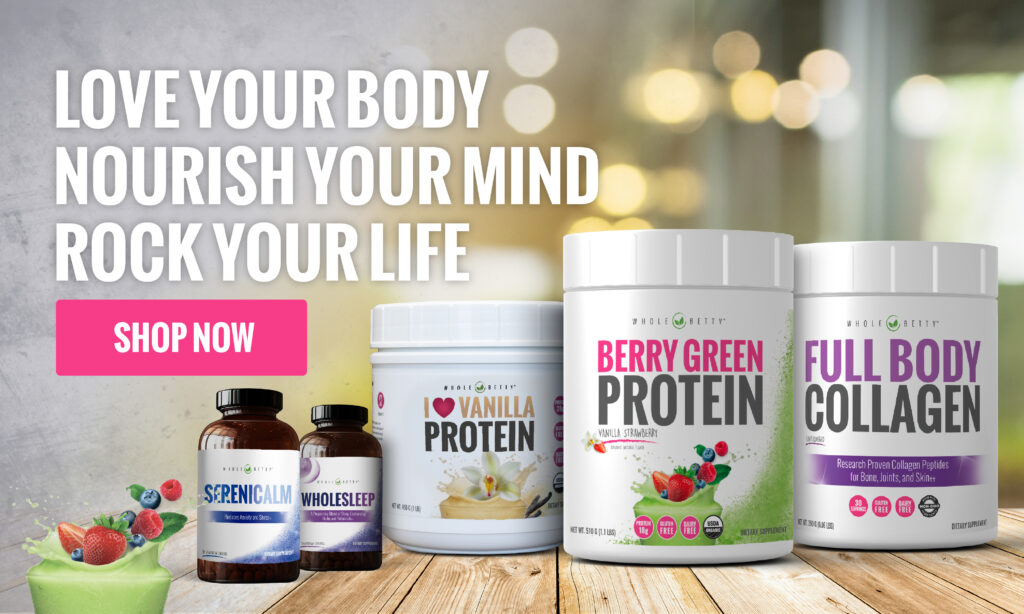
One of the questions I get asked a lot is if it’s “okay to eat whole eggs.”
And that’s a really good question, because opinions abound.
Will it raise your cholesterol?
Can’t you just get protein from eating the whites?
Why spend the extra money to buy organic or pastured eggs?
I’m here to answer your questions and share exactly what I do and why.
I eat 2-3 whole eggs every day.
By throwing out the yolk and only eating egg whites, you’re essentially throwing out the most nutrient dense, antioxidant-rich, vitamin and mineral loaded portion of the egg.
The yolks contain many B-vitamins, trace minerals, vitamin A, folate, choline, lutein, and other powerful nutrients that do wonders for your body.
Even the protein in egg whites isn’t as powerful without the yolks to balance out the amino acid profile and make the protein more bio-available.
Often I do add some additional egg whites from a carton to my whole eggs to both save a little money and to increase the protein content without losing the nutrient benefits that you get from eating the yolks with the whites.
Not to mention that the egg yolks from free range chickens are loaded with healthy omega-3 fatty acids. Yolks contain more than 90% of the calcium, iron, phosphorus, zinc, thiamin, B6, folate, and B12, and panthothenic acid of the egg.
In addition, the yolks contain ALL of the fat soluble vitamins A, D, E, and K in the egg, as well as ALL of the essential fatty acids (EFAs).

Don’t be…when you eat a food that contains a high amount of dietary cholesterol such as eggs, your body down-regulates its internal production of cholesterol to balance things out.
This is something you only need to worry about if you’re eating a lot of processed foods – but I’m guessing that’s not you!
On the other hand, if you don’t eat enough cholesterol, your body simply produces more since cholesterol has dozens of important vital functions in the body.
If you are struggling with high cholesterol, or are under a doctor’s care you should be mindful of your consumption of fatty foods – the greatest danger being from the foods that raised your cholesterol in the first place, the processed ones.
You should definitely add fiber-rich foods to your diet like whole grains (soaked, sprouted or fermented of course!), cruciferous vegetables and fruits for example.
Eating a whole food based diet that you base on foods combined to make delicious and tasty meals will go miles to adding years to your life and life to your years. Combine that with regular exercise and you’ve got a recipe for success and low cholesterol.
I supplement my whole food eating with all-natural protein powders like the ones my brand Whole Betty has created, including:
